If you plan to renovate your home, one of the first questions that should spring to mind is, “do I need planning permission?” The answer to this question will determine your next steps and how early in the project you must enlist an architectural technician.
Do I Need Planning Permission? An Amico Design Guide
Having spent more than 20 years specialising in architectural and planning application services, we have helped countless clients to gain the approval they need to pursue their projects. We handle the entire process on their behalf and, as such, have put together this informative guide to help with planning permission from the get-go.
- What Is Planning Permission?
- What Planning Permission Do I Need?
- How To Get Planning Permission
- How Long Does Planning Permission Last?
- How Long Does Planning Permission Take?
- How Much Does Planning Permission Cost?

What Is Planning Permission?
Every home is designed with permitted development rights; this is the work you are allowed to carry out on your property without prior approval from your local authorities. All permitted development rights contain strict conditions, which you must meet to ensure your home remains compliant.
Should your proposed project fall outside the conditions of your permitted development rights, you must apply for planning permission. Planning permission has been in place for more than 70 years, and it is the responsibility of your local planning authorities to approve or refuse. You can search for the details on your local authority via the GOV.UK website.
There are some instances whereby stricter planning guidelines will be in place. For example, any work on a listed building, in a conservation area or on National Park land must be granted planning permission. Even if you are approved, there will likely be conditions in place to protect original features.
At Amico Design Architecture, our reliable planning application services handle every stage of this process on your behalf. Not only will we work closely with you on your CAD drawings and project statements, but we will also liaise with your local authorities to speed up approval.
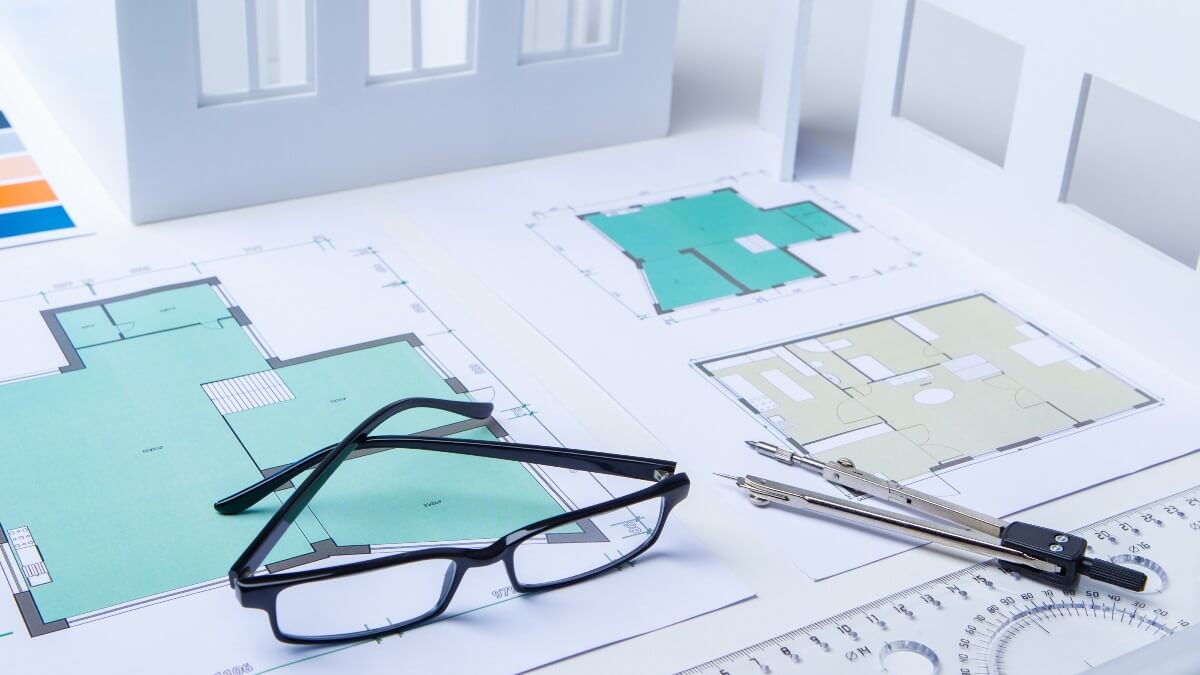
What Planning Permission Do I Need?
Whether you need planning permission will depend on many factors, starting with your project type. Find out more about planning guidelines on the most popular home renovations below:
Do I Need Planning Permission For An Extension?
An extension is usually considered as permitted development; however, there are still rules you need to abide by; these include:
- Your extension can’t be more than half the land area around the original house
- They can again not be bigger than the eaves on the roof
- For side extensions, they cannot extend over four metres in height, so they can only be one single storey and up to half the width of the original house
- For a multiple-storey extension, it cannot extend the back wall of the original house by more than three metres; if it is on Article2(3) land, it will require planning permissions
If your extension plans fall outside of these conditions, you will need to apply for planning permission.
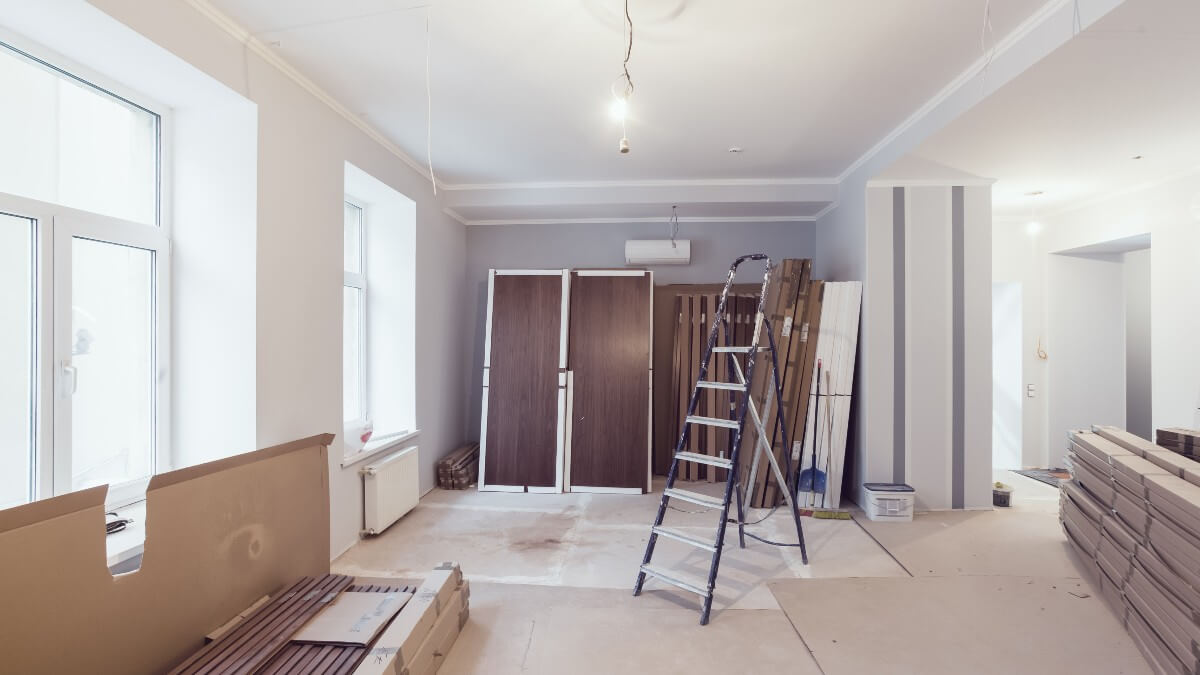
Do You Need Planning Permission To Convert A Garage?
As a garage conversion is typically internal and does not involve changing the size or shape of the space, in most cases, you do not need planning permission. You are only likely to need planning permission if:
- Your property is on a new housing development, is listed or in a conservation area
- You are planning to use your garage conversion as a separate house
Nevertheless, it is always recommended to consult your local authorities, even if you are confident your plans fall within permitted development rights; this will eliminate any planning-related disputes later on down the line.

Do You Need Planning Permission For Solar Panels?
Solar panels have become a popular addition to many homes thanks to their excellent money-saving and sustainability benefits. And even better, it is rare that solar panels require planning permission, providing that you ensure that:
You have to ensure that:
- The solar panels are installed in a way that only affects the exterior of the building
- If no longer needed, the equipment should be removed as soon as possible
- As usual, they cannot be higher than the highest part of the roof
- The solar panels can not protrude more than 0.2m beyond the roof plane, so planning permission is usually required for flat roofs
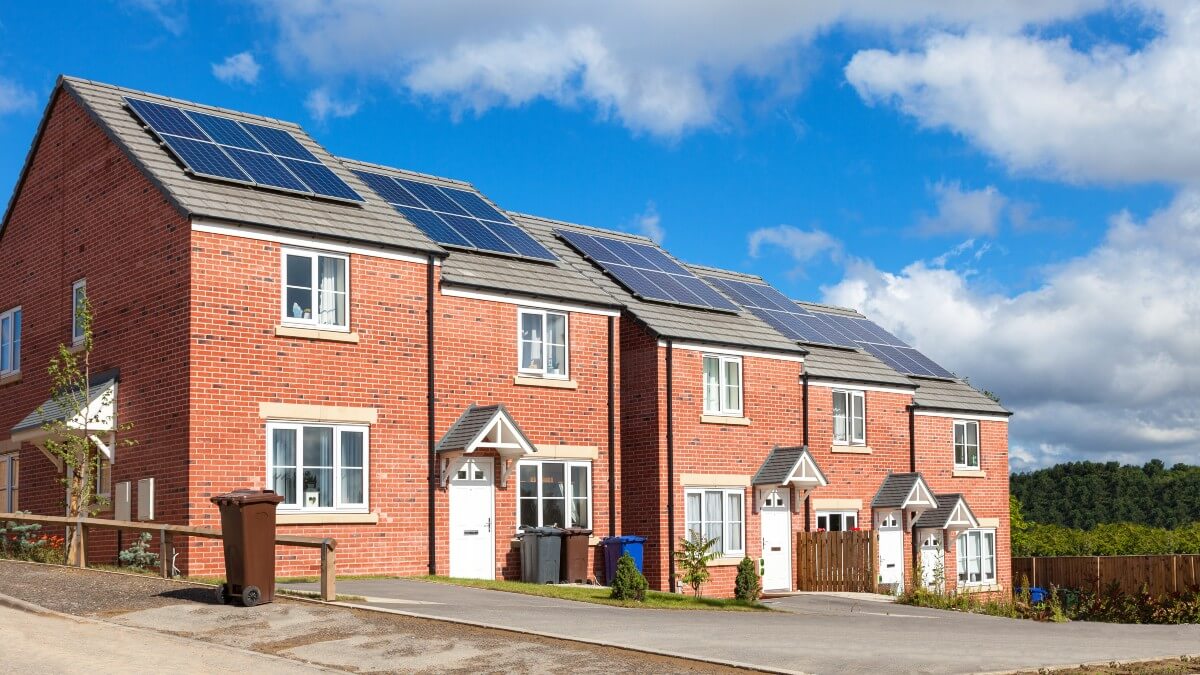
Do You Need Planning Permission For A Loft Conversion?
Much like all the renovations mentioned above, converting your loft does not typically require planning permission. While there are many loft conversion types to choose between, from a dormer to a Velux, all come alongside the same conditions. To convert your loft under your permitted development rights, you must:
- Choose materials that look similar to your property and maintain the eaves of the original roof.
- Keep any roof extension under 40 cubic metres for terraced houses or 50 cubic metres otherwise. They must also not exceed the height of the roof.
- Avoid including a balcony, raised platform or veranda in your design.
- Ensure that the principal elevation of the house does not extend beyond the existing slope of the roof.
- Only install side-facing windows if they are obscure-glazed, and if they will be opened, they must be 1.7 metres above the floor of the room in which they are installed.
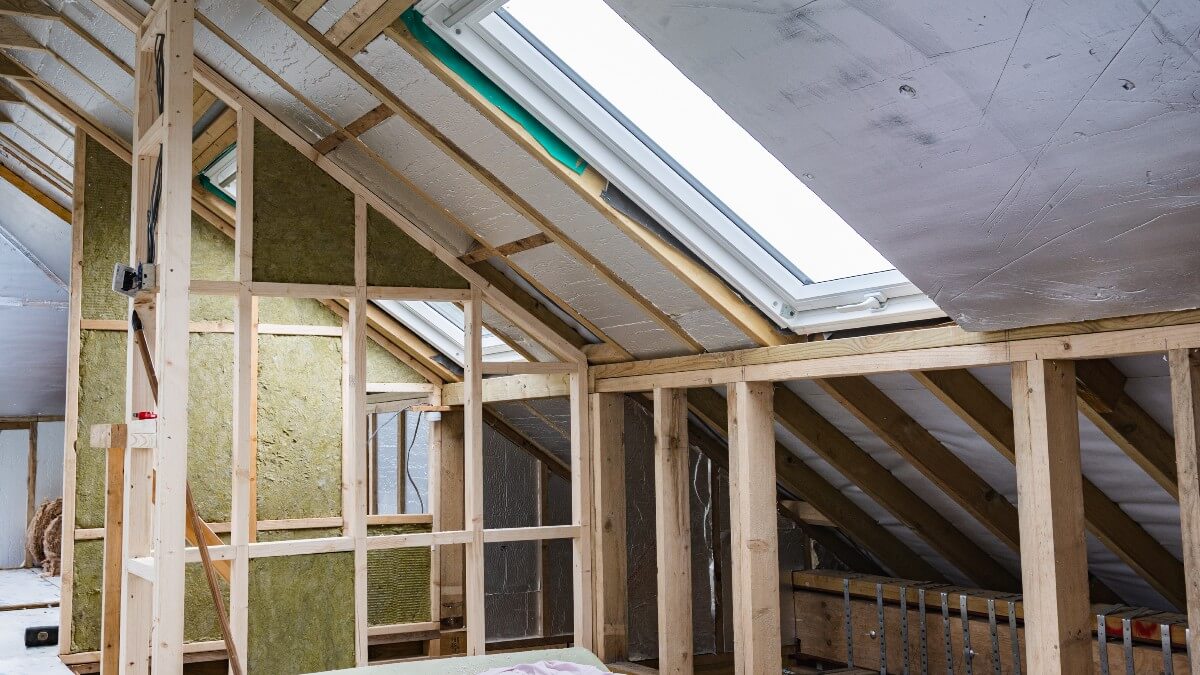
Can I Build A House Without Planning Permission?
Building a new property from scratch will always require planning permission. In some cases, planning permission may come with the plot of land you have purchased, which means that you will not have to undergo the application process but will need to ensure your property fits the pre-agreed guidelines. For others, you will buy the land and then start to arrange planning permission based on your building plans.
Due to the scale and complexity of planning a new build project, enlisting professional architectural services as early in the process as possible will always work towards your advantage. Our skilled architectural technicians have extensive experience handling this process and can guide you through every stage with ease. From the initial site survey and CAD drawings to complete project management, our services offer end-to-end support. Please do not hesitate to contact us for a free consultation.

How To Get Planning Permission
Applying for planning permission can be incredibly tedious, particularly if you are new to the process. For this reason, our dedicated team handle each stage on your behalf. We have helped hundreds of clients with applying for planning permission; here is what you can expect:
- The process begins with a meeting to discuss your vision and project specifications. From here, we will create a tailored proposal.
- When you have agreed to the proposal, a measured survey will be booked to determine the exact measurements of your project.
- Using this data, we will begin your CAD drawings and all other necessary application paperwork; these are then submitted for planning approval.
- Once approved, building regulation drawings will also be sent off for building control approval.
- As soon as all proposed plans have been accepted, the project can commence.
At Amico Design Architecture, our experts in architectural services in Northampton have strong relationships with both local authorities and private inspectors, allowing us to speed up the process. We currently maintain an impressive 95% approval rate, and as such, our clients continue to return time after time again.

How Long Does Planning Permission Last?
There is an expiry period on planning permission; this is currently three years from the date it was granted. If you have not started your project by this cut-off date, you will likely need to reapply before continuing.
Although rare, there are some exceptions, but these will be clearly stated in your permission letter. You may also find that, in some cases, your planning approval is subject to conditions which means that additional documentation will be necessary before you can begin.
Once we have gained planning permission approval, we will always go through the documentation with you, so you are clear on any expiry dates.

How Long Does Planning Permission Take?
Being granted planning permission should not take too long; local authorities should not exceed eight weeks if you have a straightforward plan but 13 weeks for more extensive or complicated procedures. If you have a project subject to an Environmental Impact Assessment, then local authorities have 16 weeks. You can agree with the authorities to take longer than this; however, if they exceed it without your agreement, you can appeal to the Secretary of State; however, this may take a lot of time.
Delays could also be caused by pushing this back; these could be caused by incomplete applications, payment of fees, and the time you have a planning committee meeting.
For more information on planning permissions and how long they should take, have a look at this article by DesigningBuildings.
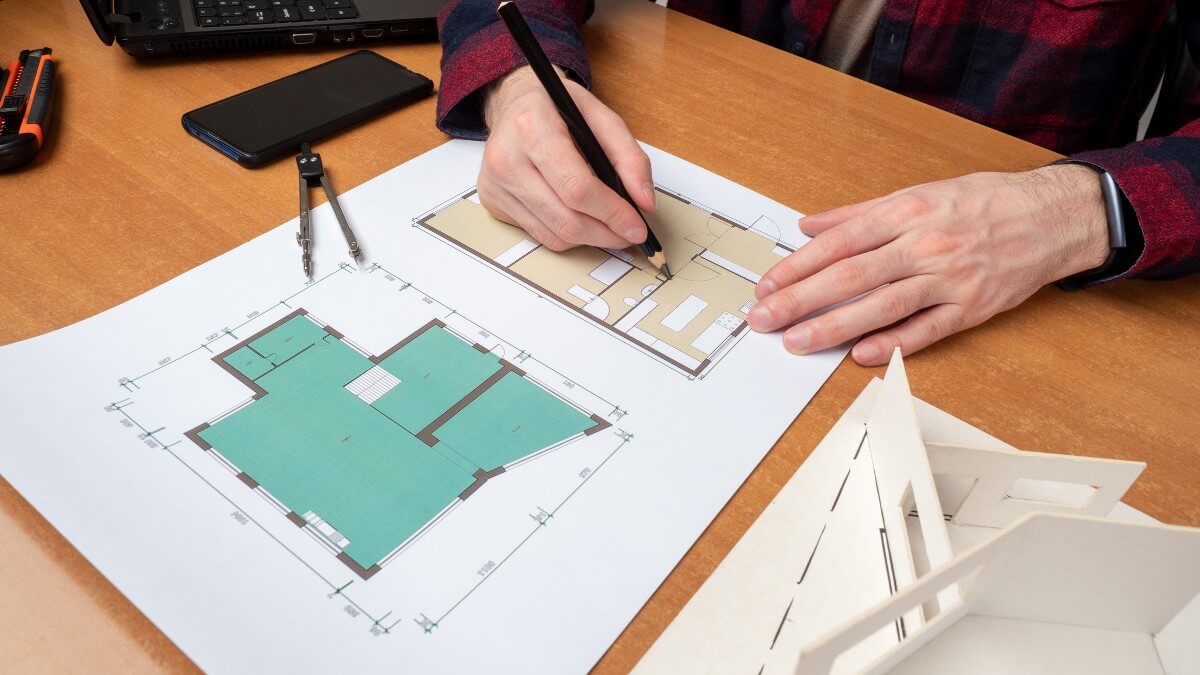
How Much Does Planning Permission Cost?
Full planning permission for a new build house or conversion is currently £462. Still, for outline applications, it is £462 per 0.1 hectares, and householder applications needed for extensions and garden buildings are £206.
Often permissions are granted subject to conditions, so if this is the case, things like landscaping or materials will need to be approved, costing £116.
For PlanningPortal submitting, there is a £20 processing charge that you pay online.

Everything You Need To Know About Planning Permission
Although planning permission may seem complicated, the conditions are relatively straightforward when broken down, and we hope our article has helped to simplify the process.
As always, if you have any further questions or are interested in our architectural design in Northampton, please do not hesitate to get in touch You will first be greeted by our operations team, who will arrange a meeting either at your property or over Zoom to discuss your project in more detail.
In need of more information?
Contact us and we’ll be back in touch as soon as possible.

